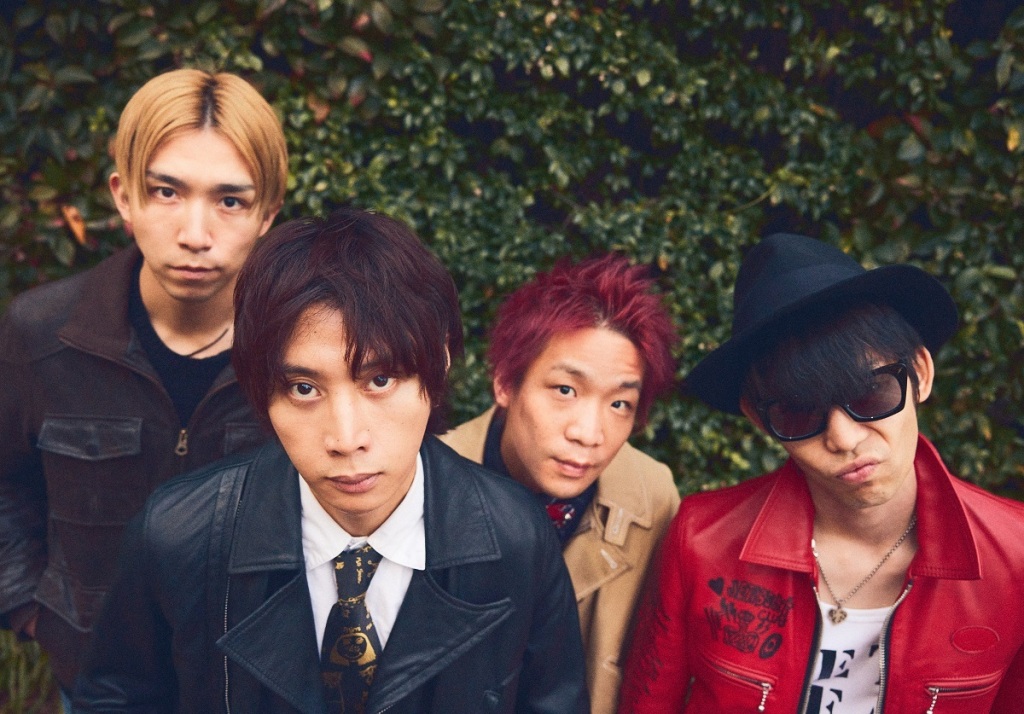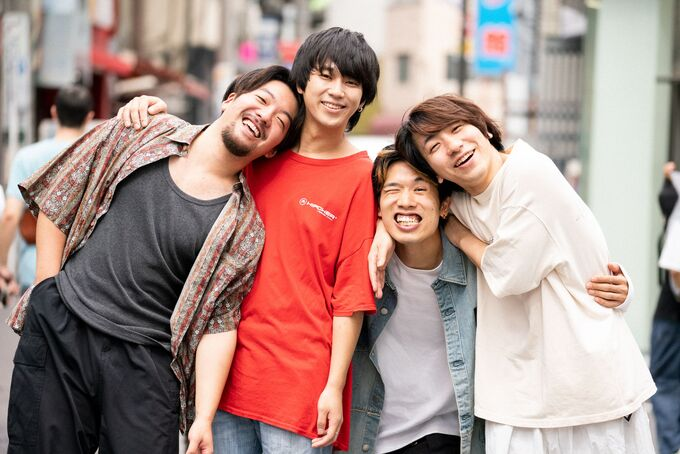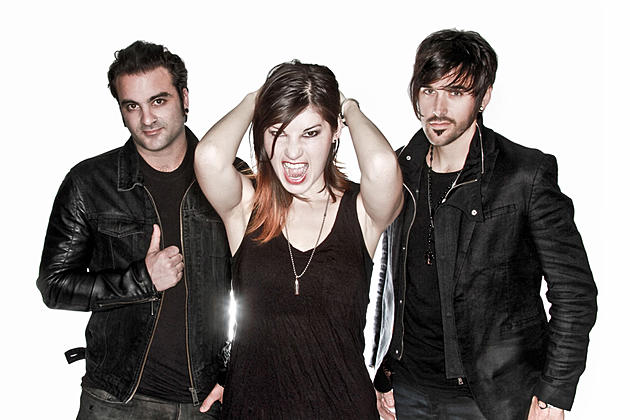
To see and practice examples of the Japanese grammar 〇〇すぎる~ / 〇〇 su-gi-ru (soo-gee-roo) for the JLPT 4, we’ll use the song “ヤバすぎるスピード” by J-rock band, Humbreaders. First I’ll introduce the band and the chorus of the lyrics we’ll dissect, but feel free to skip to the grammar here
Humbreaders
If you’re looking for a bit of color to complement the changing leaves this autumn, check out Osaka band, Humbreaders. They integrate heavy rock guitar and melodic pop rock (with punk elements, particularly in the drums) to create a bright playful sound that’ll lift you into better spirits.
The members consist of Akira Mutumuro ( vox/ guitar), Derashi (bass),Toiro Kijima (drums), and ukicaster (guitar).
As surprising as their instrumental breakdowns are is their name: ‘Humbreaders’, though the katakana reading is: hanbreaders (ハンブレダダーズ). I was just as puzzled as you probably are about what that’s supposed to mean.
Luckily when I looked into it, I found the answer: it was a name crafted while the four of them were struggling to come up with a band name at a hamburger shop. As they continued to struggle, one of them said “ブレできた” or “boo-reh deh-kee-tah” which I’m guessing is similar to the expression in English: going crosseyed.
The term ‘boo-reh’ means ‘blur’, but based on the context, I deduced that the ‘blurring’ could be referring to thinking too much.
Therefore, they put ‘ham’ and ‘bre’ to make ‘humbreaders’. I’m really not sure why the Romanization is ‘humbreaders’ instead of ‘hambreaders’, though.
The band formed in high school and was inspired by the anime “K-on!” to perform at a school cultural festival. Although the band has been together since 2009, due to differing opinions and work schedules, it wasn’t until 2020 that the four of them reunited to release their major debut album, “Toy’s Factory”.
In 2023, they cemented their growing fame by claiming the ending theme of “BORUTO- NARUTO NEXT GENERATION” with their song “Mata ne” or “See you later~”
The song that drew me, however, was “Yabasugiru Speed” or “Speed that’s too fast”, which features on their third full album of the same name.
The song is bright, energetic, and perfect for a car ride along the coast—or bike ride, as the lyrics reference.
Speaking of the lyrics, we’ll get into that now~ At least, the chorus. I’ll also highlight some vocabulary you can easily pick up and apply.
Chorus
ヤバすぎるスピードで
やばすぎるすぴーどで
(Yah-bah-soo-gee-roo soo-pee-doh deh)
With a speed that’s too fast/With dangerous speed
走り続けようぜ
はしりつづけようぜ
(Ha-shee-ree-tsu-zu-keh-yoh-zeh)
Let’s keep riding!
目的地はなくても
もくてきちはなくても
(Moh-koo-teh-kee-chi wa nah-koo-teh-moh)
Even with no destination
別に構わない
べつにかまわない
(Beh-tsu nee kah-mah-wah-nah-ee)
It doesn’t matter
左胸のビートが加速していくんだ
ひだりむねびーとはかそくしていくんだ
(Hee-dah-ree moo-neh bee-toh gah kah-soh-koo she-teh ee-koon dah)
The left side of my chest speeds up
何かが起こりそうな予感
なにかがおこりそうなよかん
(nah-nee kah gah oh-koh-ree-soh-nah yoh-kah-n)
I sense something’s gonna happen!
The Grammar: 〇〇すぎる~/ su-gi-ru/ soo-gee-roo
Referring back to the lyrics and title: ヤバすぎるスピード (yah-bah-soo-gee-roo soo-pee-doh), we can gather that the grammar means ‘too much’ of something or ‘too~’. Similar to English, it generally holds a negative nuance. Of course, we do say things like “That’s way too good”, but even that has an underlying tone of doubt and suspicion.
★ “やばすぎる” is written as “ ヤバすぎる” for stylistic reasons. In Japanese media, they often use katakana not only for borrowed words but also to make certain words stand out. You’ll especially see slang and popular adjectives like ‘cute’ (カワイイ~~) or ‘cool’(カッコイイ~) written in katakana. There doesn’t seem to be any particular rule, but I see katakana mish-mashed in text constantly.
Anyway, the nuance of ‘too good’ is identical in Japanese. Completely. The usage here: やばすぎる directly translates to “too dangerous”. However, the meaning of やばい (yah-bah-ee) has shifted in society to hold both good and bad meanings. It’s like the English “unbelievable”; we use it to express amazement, but also disappointment. Or a mixture of the two.
If you’re studying elementary/low-intermediate Japanese, this is one structure you’ll probably come across a lot on the internet and in conversation among young Japanese people. Particularly ‘やばすぎる’. At least, up until a year or so ago…
“やばい” (yah-bah-ee) is a millennial/ Gen-x term, whereas Gen-Z introduced “えぐい”(eh-goo-ee) in its place. So, if you live in Japan or watch a lot of TV shows, you may come to hear that word instead of ”やばい”. Even so, pairing it with ~すぎる, is exactly the same.
Although…honestly I’ve never HEARD…えぐすぎる… so…maybe that’s not entirely correct as far as how it’s used. In any case, do you see what I did there?
やばい+ すぎる → やばいすぎる
えぐい+ すぎる →えぐいすぎる
The い or “i” (pronounced ‘ee’) in adjectives gets dropped.
More examples include:
Expensive: (tah-kah-ee) たかい+ すぎる →たかすぎる
Cold: (sah-moo-ee) さむい+ すぎる →さむすぎる
Big: (oh-kee) おおきい+ すぎる →おおきすぎる
Even more fun is that, since すぎる is a modifier, you can sometimes treat it like a normal verb to change the tense. For example:
That bag WAS too expensive
そのかばんがたかすぎたんだ
(Soh-noh kah-bah-n gah tah-kah-soo-gee-tah-n dah)
However, just like in English, it wouldn’t make sense to use progressive tense or something to show a continuing state for this grammar. It’s either too expensive or not–it can’t be ‘expensiving’. If we want to express an increase, we use a different structure.
Karaoke time~
So, now that we’ve broken down the chorus, let’s hear what it sounds like in the song~ Why don’t you try singing along?
ヤバすぎるスピードで
やばすぎるすぴーどで
(Yah-bah-soo-gee-roo soo-pee-doh deh)
With a speed that’s too fast/With dangerous speed
走り続けようぜ
はしりつづけようぜ
(Ha-shee-ree-tsu-zu-keh-yoh-zeh)
Let’s keep riding!
目的地はなくても
もくてきちはなくても
(Moh-koo-teh-kee-chi wa nah-koo-teh-moh)
Even with no destination
別に構わない
べつにかまわない
(Beh-tsu nee kah-mah-wah-nah-ee)
It doesn’t matter
左胸のビートが加速していくんだ
ひだりむねびーとはかそくしていくんだ
(Hee-dah-ree moo-neh bee-toh gah kah-soh-koo she-teh ee-koon dah)
The left side of my chest speeds up
何かが起こりそうな予感
なにかがおこりそうなよかん
(nah-nee kah gah oh-koh-ree-soh-nah yoh-kah-n)
I sense something’s gonna happen!





Leave a comment